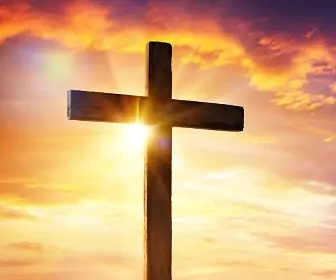
NAIROBI, Kenya, Nov 10 – A petition lodged at the Supreme Court challenging the electoral commission’s decision to proceed to conduct a presidential election on October 26 without conducting fresh nominations will be heard by a bench to be constituted by Deputy Chief Justice Philomena Mwilu.
The directions on the petition filed by activist Okiya Omtatah prior to the declaration of last month’s fresh presidential election results were issued on Friday by Deputy Supreme Court Registrar Daniel Ole Keiwua when parties to the matter filed submissions.
Omtatah filed the petition on grounds that the Independent Electoral and Boundaries Commission (IEBC) had overlooked the 2013 presidential election petition ruling which envisaged a situation where the only contenders in the fresh election would be President Uhuru Kenyatta and National Super Alliance (NASA) candidate Raila Odinga.
Following Odinga’s pullout from the race on October 10, Omtatah argues that IEBC should have exited the scheduled election under Article 140 (3) of the Constitution and moved on to prepare for an election under Article 138 (8) (b) of the Constitution.
“The 26th October 2017 presidential elections held pursuant to Article 140(3) of the Constitution after the withdrawal of the NASA presidential and deputy presidential candidates is invalid, null and void ab initio,” Omtatah pleads in part of his three-point prayers before the court.
“The IEBC ought to have organized to hold fresh elections within sixty days of the 10th of October 2017, being on or before the 10th of December 2017, preceded by fresh nominations,” the activist argues.
The argument that a fresh election could be conducted under Article 138 (8) (b) following Odinga’s withdrawal, however, remains a hotly contested issue since the said Article anticipates the vacation of a scheduled election if a candidate in the election or his deputy dies before the scheduled election date.
Further to his pleadings, Omtatah also seeks to compel IEBC to conduct a fresh presidential election under Article 138.
IEBC and President Kenyatta who are named as respondent and interested party respectively have however filed submissions opposing Omtatah’s petition on account that the apex court lacks the jurisdiction to prosecute the matter.
In a replying affidavit, Mary Karen Kigen-Sorobit, Jubilee Party’s Deputy Chief Executive Officer and Director of Legal Affairs and Compliance avers that the October election could not have been conducted under Article 138 since the scenarios outlined therein had not occurred.
“I have been advised by the 1stInterested Party’s (Kenyatta’s) advocates on record which advice I verily believe to be true that the decision in Raila 2013 and in particular in paragraph 290 was given obiter and therefore not binding law,” Kigen-Sorobit pens in her affidavit opposing Omtatah’s petition.
“This issue is the subject matter of Civil Appeal Number 359 of 2017 which is pending in the Court of Appeal,” she further stated citing a judgment by Justice John Mativo of the High Court in Petition 471 of 2017 between Ekuru Aukot (Thirdway Alliance) and IEBC & 3 others [2017].
Also cited is Orange Democratic Movement’s (ODM) pleading in court in which the party supported Aukot’s inclusion during the case which resulted to IEBC issuing an addendum gazetting the Thirdway Alliance leader and later all the candidates who took part in the August 8 presidential election annulled by the Supreme Court on September 1, as candidates for the fresh poll.
“The fourth Respondent (ODM) supports the petition on grounds that: – (a) the Gazettement in question is discriminatory, unconstitutional and invalid to the extent it excludes the petitioner from the elections; (b) the “2013 Raila Case” is distinguishable from this case; (c) this court has inherent jurisdiction to determine this case.”,” Kigen-Sorobit quoted submissions made by lawyers representing the Odinga-led ODM party before Justice Mativo’s court.
Omtatah, however, dismissed President Kenyatta’s and IEBC’s grounds of opposition to his petition saying the apex court has jurisdiction on the matter.
“They’ve argued that I should have gone to the High Court but as you know I was at the High Court on October 10 and it is the court which advised me to come to the Supreme Court 14 days after I filed my case there,” he told Capital FM News.
“The High Court took two weeks to determine the matter and it clearly said it had no jurisdiction,” he argued adding.
The activist cautioned the apex court to handle the petition with caution since it is the High Court which advised him to move to the Supreme Court hence the matter of jurisdiction does not arise.
“My case has a very high potential of embarrassing the Supreme Court if mishandled. The court created rules that do not cater for some of the issues that arise from petitions,” he said.
“I have a right under Article 48 to access justice, under Article 50 to be heard by the court and under Article 159 they have got a duty to hear,” Omtatah contended.
Omtatah’s petition could be enjoined to three other petitions challenging the October election owing to the limited timelines the Supreme Court has to dispense petitions putting in abeyance the swearing-in of President Kenyatta.
“My case is more fundamental because I have argued that there was no election so that if my case determines that there was no election, the petitions challenging that election will not need to be heard,” Omtatah remarked.
“The danger of these other petitions is that if they fail, President Kenyatta’s victory on October 26 will be validated.”
The court has until November 20 to issue a verdict of the presidential petitions according to Article 140 (2) of the Constitution, being 14 days since the petitions were filed.







